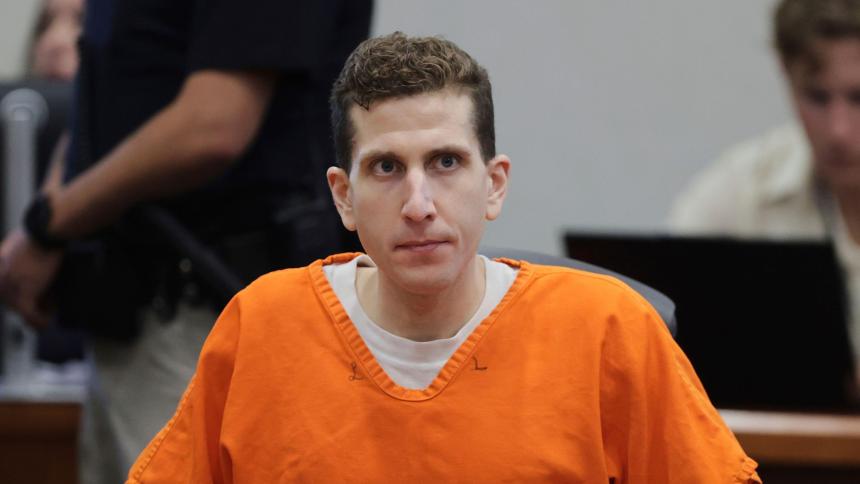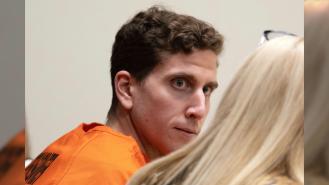
Did Bryan Kohberger mirror college killer Elliot Rodger?
The Idaho Student MurdersMost of us think crimes come from nowhere — a sudden eruption of violence without warning. But sometimes, the most chilling truths lie in the versions of ourselves we consume, the obsessions we nurture and the narratives we internalise.
In the case of Bryan Kohberger, who murdered four Idaho students in 2022, that thinking takes us straight to another infamous college killer: Elliot Rodger.
Join Crime+Investigation as we explore the parallels between Bryan Kohberger and mass murderer Elliot Rodger. This connection may reveal troubling clues into Kohberger’s mindset and inspirations.
A troubled fascination
Before the Idaho killings, Kohberger’s classmates described him as socially distant but unnervingly fixated on true crime figures – especially Elliot Rodger.
Rodger’s 2014 massacre at UC Santa Barbara, where he stabbed his roommates and then attacked sorority houses, was broadcast in what became a twisted 'incel manifesto'. And for Kohberger, Rodger's story didn't serve as a horror lesson, it potentially became a blueprint.
One of Kohberger’s classmates from DeSales University recalled how Rodger’s case came up more than once, with Kohberger showing little empathy for the victims.
'He did not seem bothered,' another classmate said, contrasting their horror with his detachment.
Later, a Facebook user going by 'Pappa Rodger' lurked in an Idaho murder discussion group, asking intimate details only investigators knew – like the knife sheath found at the crime scene. The profile vanished shortly after Kohberger’s arrest.
From true crime to real crime
The similarities begin to shift from obsession to implication. Rodger targeted females, especially sorority girls, painting them as unattainable 'Stacys' in his writings.
Kohberger struck four college students – two of whom belonged to sororities. While there’s no direct evidence he shared Rodger’s misogynistic worldview, the overlap sparks concern: was he reenacting Rodger’s terror?
Criminologist Cortney Franklin called Rodger 'a particularly dangerous version of misogyny,' one valourised in online 'incel' spaces. And for Kohberger – a man frustrated in personal relationships and obsessed with criminal studies – Rodger's narrative may have offered both justification and identity.
Constructing a suspect
James Patterson and crime journalist Vicky Ward co-authored The Idaho Murders, a book described as the definitive account of the case.
Their research portrays Kohberger as a socially awkward loner, possibly absorbed in Rodger’s horrific message. Kohberger reportedly fixated on Maddie Mogen, potentially mirroring Rodger's obsessive targeting of women who represented his insecurities.
Inmates in the Idaho jail noted his calm, narcissistic demeanour: orderly, obsessed with cleanliness, disengaged from remorse. His favourite movie, American Psycho, and cryptic behaviours – like showering frequently until emotionally numb – reinforce a chilling profile of someone modelling violence through media and manifestos.
Silence that speaks volumes
If detective work had proven Kohberger studied Rodger’s manifesto for behavioural clues, we'd hear about it. But no direct statements of motivation emerged during sentencing. From demographic targeting to symbolic actions – Kohberger refused to explain why he acted.
In court, Judge Steven Hippler remarked that seeking motive amplifies the killer’s control: 'the more we search for motives, the more we grant him power he doesn’t deserve.' And so, it stands: the formal verdict focused on the facts, not the feelings.
Why this matters
This isn’t about sensationalising or drawing false equivalences. It’s about understanding how violent fantasies leak into reality. True crime fandom and academic lectures can be harmless, but in the grinder of a disturbed mind, fascination can mutate. For Kohberger, Rodger's story wasn’t just another case study – it may have been an ideological target.
Understanding that transformation forces us to confront our part in how crime is digested, with detachment, dismissal, or derision, and ensure that obscure obsessions don’t slip into real-world horror.
Moving forward
The Idaho tragedy shattered families. Kohberger’s plea deal spared him the death penalty but couldn’t erase the devastation. We may never know exactly why he killed, but exploring the shadow of Rodger’s influence isn’t idle speculation – it’s necessary vigilance.
If nothing else, this link serves as a reminder: when fascination brushes against isolation and insecurity, the line to nightmarish action can be thinner than we’d like to believe.
Love true crime? Stay in the know with the Crime+Investigation newsletter! Get exclusive access to new articles, episodes, clips, competitions, and more – delivered weekly and completely free. Don't miss out – sign up today!












